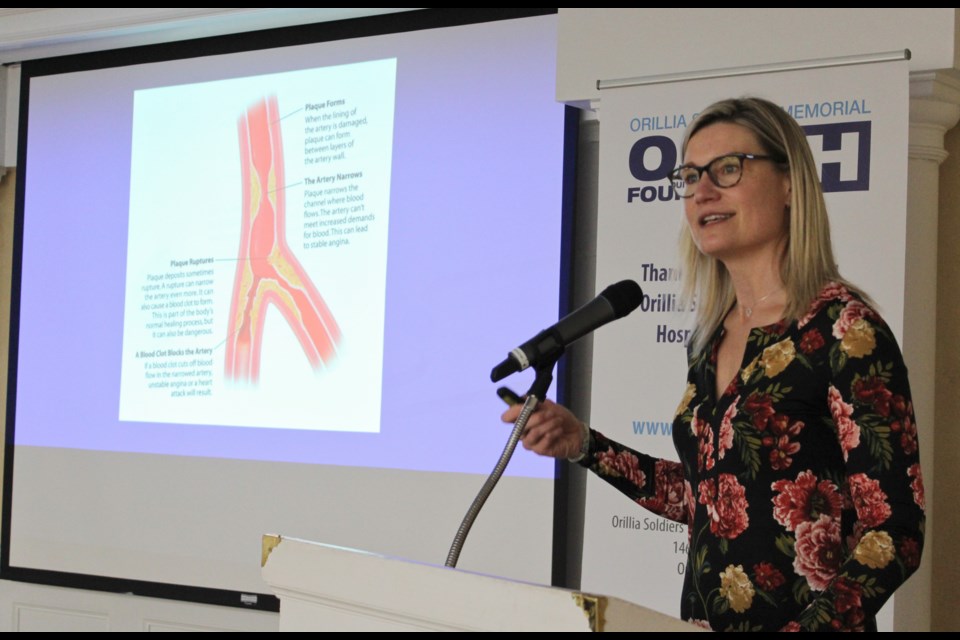The provincial government recently announced plans to invest in private health-care clinics — a move that local health care providers have mixed feelings about.
With more than 200,000 backlogged surgeries across the province, the government plans to roll out its plan to invest in community-based private health care clinics in three phases.
The clinics will first come to Windsor, Kitchener-Waterloo, and Ottawa to reduce a backlog in cataract surgeries, among other procedures, followed by additional investments to allow private clinics to carry out more complex surgeries – such as hip and knee replacements – by 2024.
As part of its plan, the provincial government is investing $300 million across 2022-23, and stressed that care at for-profit clinics would be covered by OHIP, according to a Jan. 16 news release.
On one hand, area health care providers said they are eager to see surgery wait-times reduced.
“People are waiting far too long for the elective surgeries and procedures such as (for) cataracts, the hip and knee replacements, and some of the diagnostic imaging and CT scans and MRIs, and the pandemic really made those wait times worse,” said Rose Zacharias, an Orillia-based doctor who is the current president of the Ontario Medical Association.
“We really need to do something different to catch up and bring those patients in for those surgeries, so this announcement (is) encouraging.”
Done right, investing in private health clinics will free up valuable space in hospitals, Zacharias said, as numerous elective surgeries will be able to take place outside of hospitals.
“Many of these cases are at risk of being cancelled or postponed when they've been booked, for example, in a hospital operating room and then something more emergent comes along,” she said.
“Imagine someone who's been waiting a year-and-a-half for their hip replacement surgery, and on that particular day there's a motor vehicle accident … and we're dealing with a multi-car pileup and there's lots of broken bones … that person's time slot in the operating room gets bumped, it gets cancelled, because it can wait.”
Zacharias expressed concern about potential staffing issues in communities facing challenges in keeping the hospital fully staffed.
It will be imperative for private clinics and hospitals to work hand-in-hand to ensure there are enough resources in the community, she added, and suggested the possibility of health-care professionals splitting time between clinics and hospitals.
If managed correctly, she said such an arrangement might even help with burnout among staff at hospitals.
“Staff can maybe work one week in a clinic, and the rest of the time in hospital and we actually believe that having some time in the lower acuity setting may even help to retain staff, to deal with the burnout issues that we are facing,” she said.
When asked about the possibility for financially well-off people to jump the queue at private clinics, Zacharias stressed the importance of surgeries getting triaged according to need in both public and private settings.
“What we are absolutely adamant about is that no one should be paying out of pocket to jump the queue,” she said.
For Elizabeth Van Houtte, a local social worker and perennial Simcoe North NDP candidate, the provincial government’s move to fund private clinics signals a step towards privatizing health care in Ontario.
Van Houtte highlighted chronic underfunding of Ontario’s health-care system, the wage caps brought about by Bill 124, and her own personal experiences while working in both private and public social work settings in Canada and the United States.
She pointed to a recent Toronto Star column stating Ontario would need to spend an additional $7.2 billion this year to meet the average of what other provinces are spending on health care, per capita.
“If you can't fund a public system, what makes you think you're going to fund a private system?” she said. “Ontario contributes the least amount to health care. They have the money … they get their federal downpayment, and they didn't use most of that money over COVID – they sat on it.”
Van Houtte also argued that the current shortage in health-care professionals arose from both burnout and the wage caps brought on by Bill 124.-“When you treat your medical professionals (like that) with a one-per-cent increase … they just left the profession,” she said. “Where are you going to get these new people for private clinics?”
Citing private long-term care homes, Van Houtte also stressed that Ontario has tried – and failed – with private health-care options.
“Remember the long-term care facilities? They had the highest rates of death during COVID,” she said. “We've already tried it. It failed miserably, and long-term care stakeholders laughed all the way to the bank, and there's proof … they made excessive amounts of money during COVID.”
With funding slated for private clinics, Van Houtte worries Ontario could have a divided health-care system moving forward, and fears residents might eventually need private health insurance to cover a variety of health issues.
“You're going to have a divided health-care system, and people are going to have to buy insurance,” she said. “Who's going to pay for that insurance?”
“You have to pay the premiums, or we can download that onto employers, (many of whom) aren't paying for benefits now anyway.”
Van Houtte recalled her complicated pregnancy while working in the United States, which required a long-term hospital stay, and said the bill for her stay was over $1 million.
If she did not have coverage, which paid the bill, she said she likely would not have had her daughters.
“We didn't have to pay a dime of it, but that's the reality. What if I didn't have insurance? I probably would have went home. I probably would have never had the kids,” she said.



